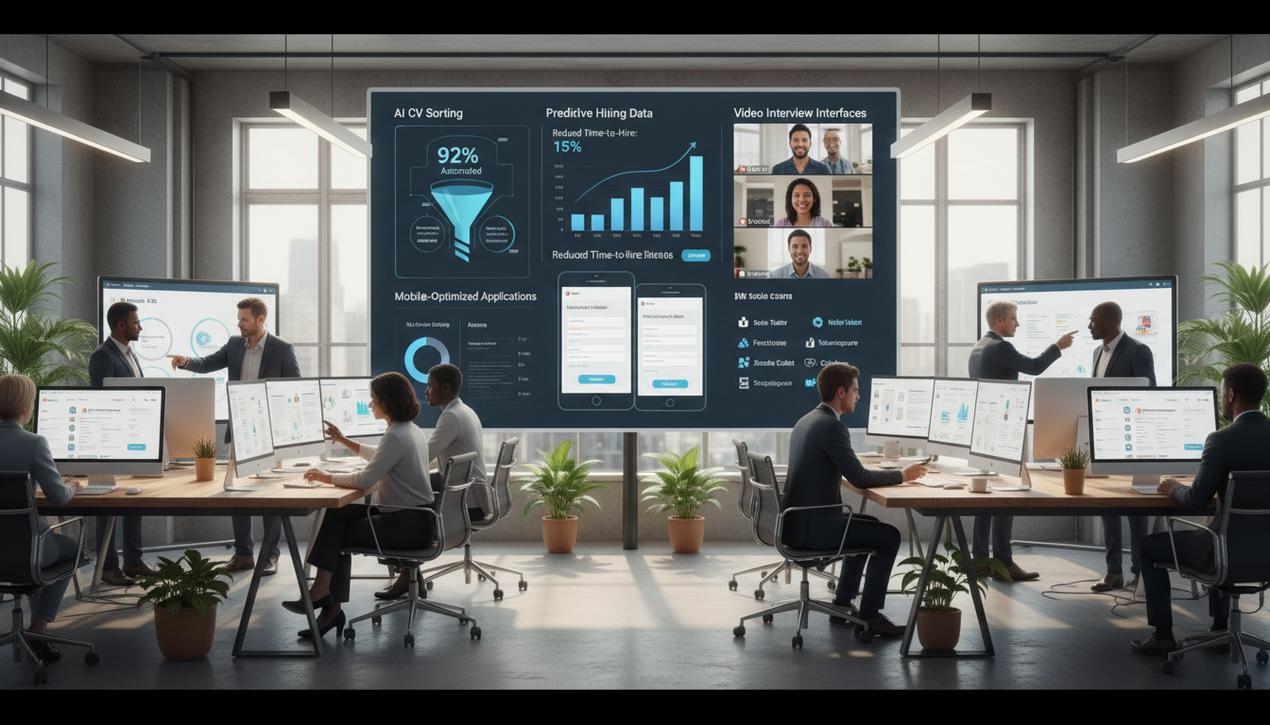The Complete Guide to the 25 Best AI Chatbots of 2025


The era of AI chatbots has moved far beyond simple tech gadgets to become a strategic pillar in the digital transformation of businesses. Powered by increasingly sophisticated artificial intelligence, these conversational agents are redefining customer interaction, operational efficiency, and workplace productivity. Available 24/7, they no longer just answer simple questions; they anticipate needs, personalize exchanges, and automate complex processes. The global AI chatbot market is experiencing explosive growth, projected to exceed $46 billion by 2029, with an annual growth rate of nearly 25%. Already in 2025, nearly 88% of consumers have interacted with a chatbot, and this trend is only accelerating. For companies, ignoring this revolution means risking being left behind. This comprehensive guide presents the 25 most powerful AI chatbots to boost your sales, optimize your marketing, and improve your overall performance.
The Measurable Impact of AI Chatbots on Business
Adopting chatbots isn’t just about being modern; it’s a quantifiable performance lever. Companies that integrate these tools see significant returns on investment in several key areas.
Cost Reduction and Resource Optimization
The most tangible benefit is a drastic reduction in operational costs. A single chatbot can handle thousands of conversations simultaneously, a task that would require a large human team. It’s estimated that chatbots can reduce customer service costs by up to 30% by instantly answering frequently asked questions. This frees up human agents to focus on high-value tasks, such as resolving complex issues or managing high-value clients.
Increased Sales and Lead Generation
Chatbots are formidable sales tools. They proactively engage website visitors, qualify them in real-time, and guide them through the purchasing journey. By providing personalized recommendations and answering product questions 24/7, they remove barriers to purchase and increase conversion rates. Some studies show that using a chatbot can increase sales by over 67%.
Enhanced Customer Satisfaction and Loyalty
Speed is the key to customer satisfaction. Over 60% of consumers prefer using a chatbot to waiting for a human agent. By offering instant and accurate assistance, AI chatbots significantly improve the user experience. This responsiveness builds trust and loyalty, turning satisfied customers into brand ambassadors.
2025 Trends Shaping Tomorrow’s Chatbots
The world of AI chatbots is constantly evolving. In 2025, several key trends are emerging, making these tools even smarter, more human-like, and more integrated into business ecosystems.
Hyper-Personalization with Generative AI
Modern chatbots, powered by advanced language models like GPT-4, do more than just follow scripts. They understand context, analyze sentiment, and adapt their tone to deliver smooth, natural conversations. This generative AI allows for hyper-personalization, remembering past interactions to offer tailored solutions and offers.
The Rise of Voicebots and Conversational AI
Voice is the next frontier of interaction. Voicebots, or voice-activated chatbots, are gaining popularity. Integrated with voice assistants or company phone systems, they enable an even faster and more intuitive hands-free interaction. This trend is part of an omnichannel approach where a customer can start a conversation via text and continue it by voice without any friction.
Proactive and Predictive Chatbots
Chatbots are no longer just reactive. Using predictive analytics, they can anticipate user needs. For example, a chatbot on an e-commerce site can detect a hesitant customer on a checkout page and offer help or a discount code to complete the purchase. This proactivity transforms the chatbot into a true sales assistant.
Our Selection of 25 Essential AI Chatbots
The market is filled with solutions, from general-purpose to highly specialized. Here is our selection, organized by use case, to help you navigate the options.
All-Purpose AI Chatbots
- ChatGPT: The pioneer developed by OpenAI. Based on GPT-4, it excels at text generation, translation, code writing, and contextual conversation.
- Gemini (formerly Bard): Google’s chatbot, directly connected to its search engine for up-to-date and sourced answers. Ideal for research and information synthesis.
- Microsoft Copilot: Integrated into the Microsoft ecosystem (Bing, Office 365), it acts as a work assistant capable of creating presentations, analyzing Excel data, or drafting emails.
- HuggingChat: A powerful open-source alternative that emphasizes transparency and collaboration, allowing easy connection to numerous language models.
- Claude: Developed by Anthropic, it is known for its ability to process very long documents and its ethical approach to AI, focusing on safety.
AI Chatbots for Marketing and Sales
- Crisp: A platform that combines a chatbot, proprietary AI, and scripts to create effective sales and support scenarios without sharing data with third parties.
- Zendesk: Integrated into its customer service suite, Zendesk’s chatbot centralizes conversations and automates support for quality, personalized assistance.
- Drift: A specialist in real-time engagement, this chatbot is designed to qualify leads on your website and increase conversion rates by connecting prospects with the right sales teams.
- ManyChat: The tool of choice for automation on social media, keeping pace with the latest 2025 social media trends (Messenger, Instagram, WhatsApp), ideal for lead acquisition and customer support on these channels.
- Gladly: Particularly effective for e-commerce, it uses advanced NLP to understand complex requests and remembers customers to offer ultra-personalized deals.
- Intercom: A comprehensive customer messaging platform that uses chatbots to qualify leads, onboard new users, and provide proactive support.
AI Chatbots for Human Resources
- Arya: This chatbot uses machine learning to source candidates, screen resumes, and identify the best talent on the web, building a qualified talent pool.
- Leena AI: A virtual assistant for employees that instantly answers HR questions about company policies, leave, or benefits.
- AllyO: Automates the entire recruitment process, from sourcing talent and scheduling interviews to pre-qualifying candidates.
AI Chatbots for Coding and Development
- GitHub Copilot: The ultimate coding assistant. It analyzes your code’s context and offers relevant suggestions, significantly speeding up development.
- Amazon Q Developer: Designed for the AWS ecosystem, it interprets developer comments and automatically suggests code blocks to facilitate application creation.
- Tabnine: Another AI code assistant that stands out for its ability to adapt to each developer’s coding style, complementing other great software creation tools.
AI Chatbots for Building Your Own Bot
- Zapier AI Chatbot: Allows you to create a custom chatbot in minutes without writing a line of code and integrate it with thousands of apps to automate workflows.
- Chatfuel: An intuitive platform for developing bots for a website or Facebook Messenger to answer questions, segment prospects, or process orders.
- Tidio: A user-friendly platform that combines live chat and chatbots, allowing small businesses to easily build their own bots to engage visitors and generate leads.
AI Chatbots for Content Creation
- Jasper Chat: A powerful content marketing tool for generating ideas, rewriting text, creating creative content, and optimizing your blog posts.
- Chat by Copy.ai: Specializes in finding precise information on the web to enrich your content, from social media posts to sales pitches.
- ChatSonic: Goes beyond text by also creating digital art from prompts while assisting with writing marketing content.
- ZenoChat: Helps content creators quickly write SEO-optimized articles, product descriptions, or engaging emails.
- Writesonic: A comprehensive solution that combines the generation of articles, ads, and social media posts with high-quality writing.
How to Choose the Right AI Chatbot for Your Needs
Faced with such a wide range of options, selecting the right tool is crucial. A structured approach will help you make the right choice.
- Clearly Define Your Objectives: What are you trying to achieve? Increase sales, reduce support costs, improve customer satisfaction, automate recruitment? Your main goal will guide your choice.
- Identify Essential Features: Do you need CRM integration, appointment scheduling, payment processing, or sentiment analysis? List your non-negotiable features.
- Evaluate Integration Capabilities: The chatbot must be able to easily connect to your existing software ecosystem (CRM, ERP, marketing tools, etc.) to avoid data silos.
- Analyze User Experience and Ease of Customization: Is the chatbot creation interface intuitive? Can you easily customize the bot’s tone and appearance to match your brand?
- Consider Budget and Pricing Model: Prices can vary based on the number of conversations, users, or features. Choose a model that fits your business volume and growth potential.
Ultimately, AI chatbots are no longer an option but an essential strategic investment for any company wishing to remain competitive in 2025. By wisely choosing the tool that aligns with your specific goals, you are not just improving a process; you are fundamentally transforming how you interact with your customers, manage your operations, and drive your growth. The conversational revolution is here, and the companies that embrace it today will be the leaders of tomorrow.




